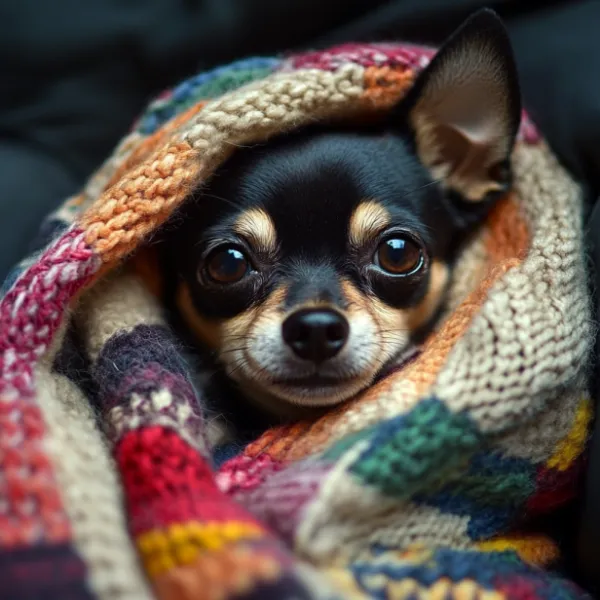3 Things All Chihuahua Owners Should Know

When it comes to owning a Chihuahua, whether it’s a short-haired or long-haired variety, these tiny dogs bring enormous joy into any household. Chihuahuas are known for their vibrant personalities, affectionate nature, and their remarkable ability to bond with their owners. However, just like any breed, they come with their own set of challenges that every responsible owner should know. To help you give your Chihuahua the best care, we’ll break down three crucial areas every Chihuahua owner should focus on: health, grooming, and behavioral traits.
1. Health Concerns in Chihuahuas
One of the most critical aspects of Chihuahua care is understanding their specific health issues. While Chihuahuas are generally healthy, they are prone to a few conditions that require your attention.
Hydrocephalus: A Serious Concern for Chihuahuas
Hydrocephalus, commonly known as "water on the brain," is a medical condition that affects some Chihuahuas. This occurs when cerebrospinal fluid accumulates in the brain, leading to increased pressure. The condition often results in an abnormally large head, seizures, and behavioral changes such as confusion and lethargy. While not all Chihuahuas will develop this condition, those with an unusually large head should be monitored closely.
Signs to watch for include:
- Frequent seizures
- Loss of coordination or balance
- Swollen head
Early detection is key. Regular veterinary check-ups can help identify hydrocephalus in its early stages, and treatment can range from medication to surgery depending on the severity.
Dental Issues: How to Protect Your Chihuahua’s Teeth
Due to their small mouths, Chihuahuas are at a higher risk of developing dental problems, especially periodontal disease. This condition is caused by the build-up of plaque and tartar, which leads to inflammation of the gums and can result in tooth loss if left untreated.
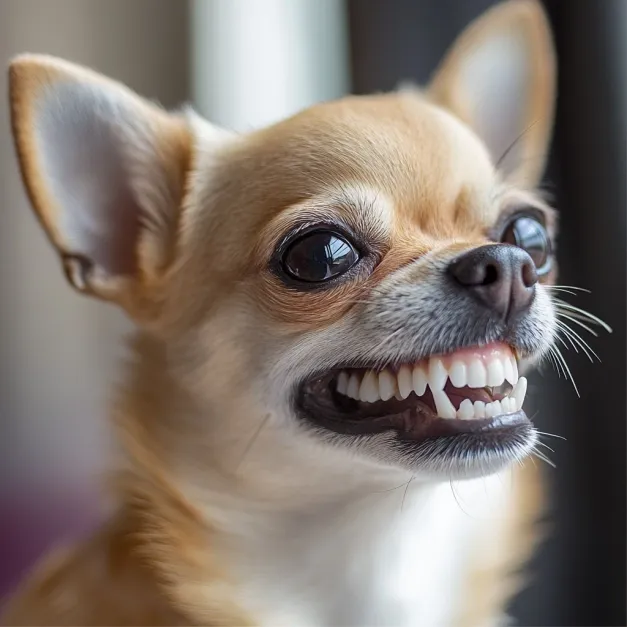
Tips for maintaining your Chihuahua’s dental health:
- Brush their teeth regularly with a vet-approved toothpaste.
- Provide dental chews to help reduce plaque.
- Schedule professional dental cleanings with your vet at least once a year.
Dental disease is not only painful for your dog, but it can also lead to other health complications, such as infections that spread to the heart or kidneys. Establishing a dental care routine early on will help avoid these issues.
Patellar Luxation: Common in Toy Breeds
Another condition commonly seen in Chihuahuas is patellar luxation, where the kneecap shifts out of place. This condition can cause discomfort and lameness, and in severe cases, it may require surgery. Patellar luxation is most often genetic, but injuries from jumping off furniture or playing roughly can also contribute.
Signs of patellar luxation include:
- Limping or skipping steps
- Difficulty walking
- Licking the affected knee
To prevent patellar luxation from worsening, avoid letting your Chihuahua jump from high surfaces and keep their weight in check. Regular vet visits can help catch early signs and manage the condition before surgery is necessary.
2. Grooming Your Chihuahua: Keeping Their Coat and Skin Healthy
Grooming is essential to ensure your Chihuahua looks and feels their best. Both short-haired and long-haired Chihuahuas require regular grooming, although the latter demands a bit more maintenance due to their luxurious coats.
Brushing Your Long-Haired Chihuahua
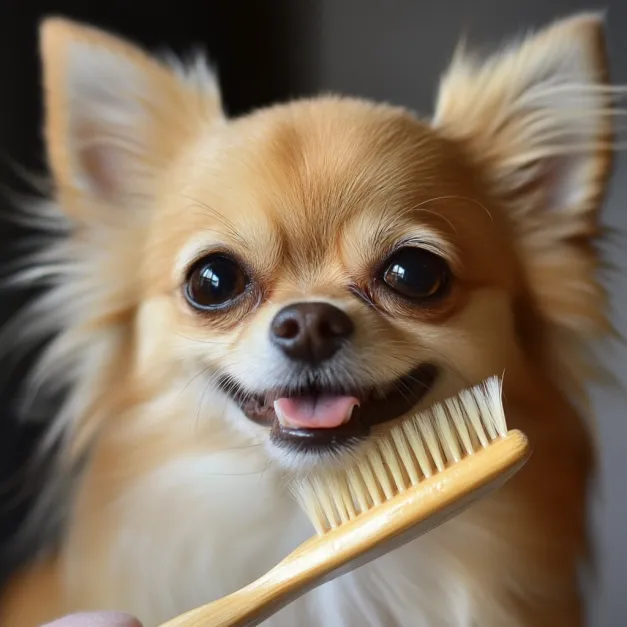
Long-haired Chihuahuas are especially prone to tangles and mats in their fur. Brushing their coat at least two to three times a week is necessary to prevent knots and reduce shedding.
Use these grooming tools for the best results:
- A soft-bristle brush for daily use
- A slicker brush to detangle and remove loose hair
- A comb for detailing and separating stubborn mats
Regular brushing not only keeps their coat smooth but also helps distribute natural oils that keep their skin healthy.
Bathing and Trimming
While Chihuahuas don’t need frequent baths, bathing your long-haired Chihuahua every 4-6 weeks will help keep their coat clean and soft. Be sure to use a mild, dog-friendly shampoo that won’t dry out their skin.
Additional grooming tasks to consider:
- Trim the fur around their paws, ears, and tail to prevent tangling.
- Clean their ears regularly, especially if they have long or floppy ears, to avoid infections.
- Clip their nails every few weeks to prevent overgrowth, which can lead to discomfort.
Dental Hygiene is Part of Grooming
As previously mentioned, dental hygiene is crucial for Chihuahuas, but it also ties into their overall grooming routine. Make brushing their teeth a regular part of grooming to prevent dental disease.
3. Behavioral Traits: Understanding Your Chihuahua’s Personality
Chihuahuas might be small, but they have big personalities. Understanding their behavior can make a world of difference in how you train and care for them.
Fiercely Loyal and Protective
Chihuahuas form deep bonds with their owners and are known for being fiercely loyal. This loyalty can sometimes translate into protectiveness, and Chihuahuas may bark excessively or act defensively toward strangers. Early socialization can help curb these tendencies, making them more comfortable around new people and animals.
Tips for socializing your Chihuahua:
- Expose them to various environments, people, and other pets at a young age.
- Use positive reinforcement to reward calm behavior around strangers.
- Enroll them in puppy training classes to encourage social skills.
Separation Anxiety: How to Manage It
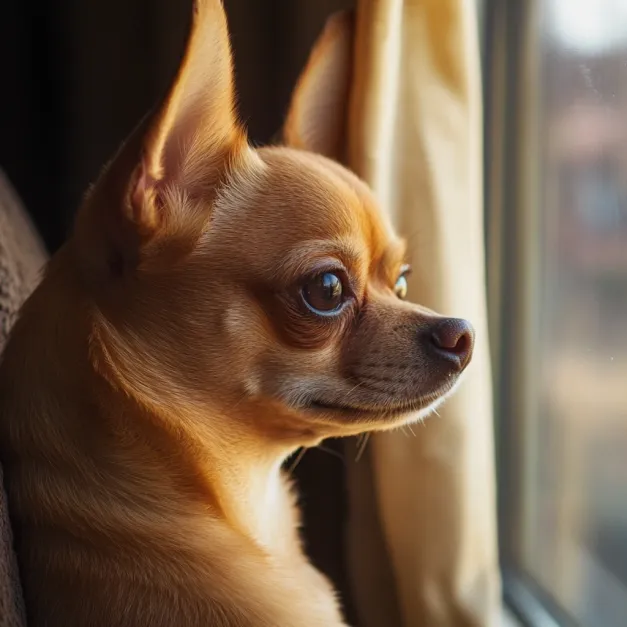
Because of their close attachment to their owners, Chihuahuas can develop separation anxiety when left alone for long periods. Symptoms include excessive barking, destructive behavior, and even bathroom accidents. To manage separation anxiety, make sure your Chihuahua has plenty of toys and distractions while you're away. Gradually increasing the time they spend alone can help them adjust.
Additional tips to prevent separation anxiety:
- Don’t make a big deal when leaving or returning home.
- Use interactive toys like puzzle feeders to keep them entertained.
- Create a comfortable and safe space where they can relax when you're not home.
Potty Training: Consistency is Key
Due to their small size, Chihuahuas may take longer to potty train than larger breeds. However, consistency and patience are crucial to success. Crate training can be an effective way to prevent accidents in the house, as Chihuahuas prefer not to soil their sleeping area.
Potty training tips:
- Take them outside frequently, especially after meals or naps.
- Use a consistent command like "Go potty" to help them understand.
- Reward them with treats and praise after successful bathroom breaks.
Conclusion
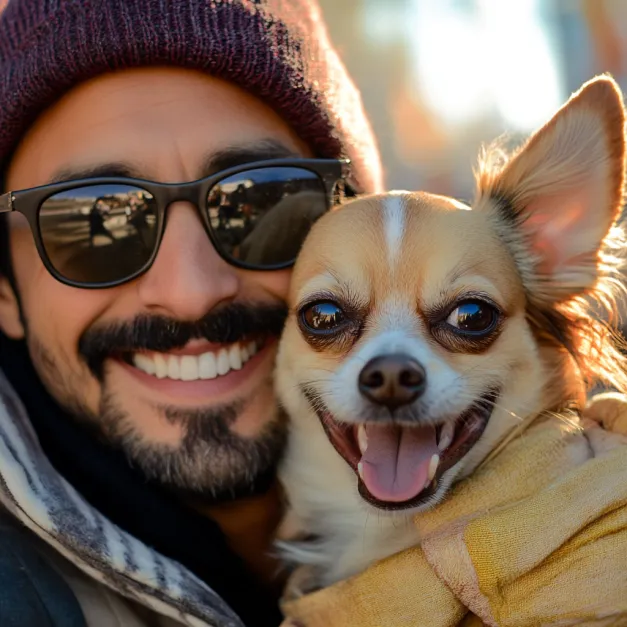
Owning a Chihuahua comes with its own unique set of challenges, but with proper care, these small dogs can live long, healthy, and happy lives. From managing health concerns like hydrocephalus and dental issues to grooming their coat and understanding their behavior, there’s plenty that goes into being a responsible Chihuahua owner.
Whether you're a first-time Chihuahua owner or a seasoned one, keeping these three key areas—health, grooming, and behavior—in mind will ensure that your tiny companion thrives. Chihuahuas may be small in size, but their love and loyalty are enormous, and with proper care, you’ll enjoy many happy years together.

